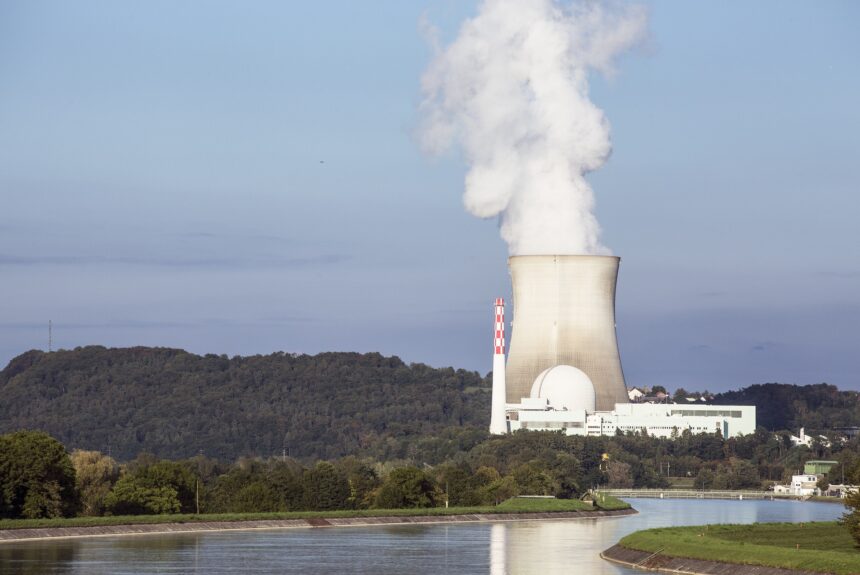Since Russia’s invasion of Ukraine on February 24, global energy markets have experienced tumultuous levels of uncertainty. The attack led to the European Union sanctioning Russia’s energy industry and the United States imposing a ban on Russian oil and gas. Prior to the invasion, Russia supplied the European Union with 40% of its natural gas imports and 55% of Germany’s natural gas imports. As countries scramble to replace the Russian energy void some governments are wondering how they will keep their citizens warm and economies open in the coming winter months, leading many to turn to nuclear power.
>>>READ: Let’s Remind Ourselves Again: Nuclear Energy Is Safe
Spain has considered paying energy-intensive companies to halt operations during peak demand hours. Finland’s national grid operator Fingrid has already warned the Finns to be prepared for power outages this winter. A hot shower in Germany may soon become a commodity as city mayors have told citizens that water rationing may be needed if Putin’s energy squeeze continues.
While the invasion of Ukraine may not have been anticipated, Europe’s energy crisis is also a result of bad policy. In 2011 Germany implemented its infamous Energiewende (energy turnaround) after the wake of the Fukushima nuclear power plant accident that was sparked by an earthquake-caused tsunami. Germany agreed to shut down all of its nuclear power plants, which supplied 22.5% of the nation’s energy, and transition to a fully renewable grid. This turned out to be a disastrous idea and led to Germany outsourcing its natural gas needs to Russia which effectively funded Putin’s war machine.
Unfortunately, Germany’s nuclear power stance has not wavered. Earlier this month the country agreed to keep two nuclear plants open to serve as a backup and last resort-type option. And while Germany has mandated a renewable energy-only policy to address climate change, the country will rely on coal to get through the winter.
Elsewhere in Europe, several governments have walked back previous plans to phase out their nuclear power fleets. Belgium, who had initially agreed to close down its nuclear industry by 2025, has agreed to extend the lives of its two largest and newest reactors. France has signaled that it will construct as many as 14 new reactors this decade with the Czech Republic, the U.K., and Poland also agreeing to grow its nuclear energy portfolio.
Japan has also shifted its view toward nuclear power. Last month Japan’s Prime Minister Fumio Kishida announced that the country will extend licenses, restart idled plants, and invest in next-generation technology to avoid blackouts. The change in policy is an about-face from Japan’s status quo. After the Fukushima disaster, Japan vowed that it would not build any new nuclear reactors. Proponents of the policy celebrated the announcement, calling it “the first step towards the normalisation of Japan’s energy policy.”
This momentum is not just good news for traditional nuclear power, but for next-generation technologies as well. Portland-based small modular reactor company NuScale has established a presence in Eastern Europe signing MOUs to bring its technology to Bulgaria, Poland, the Czech Republic, and Romania. The agreement in Romania, according to NuScale, will generate 193 permanent power plant jobs, over 2,000 manufacturing jobs, and help the country to avoid 4 million tons of CO2 per year.
>>>READ: SMR Innovation Makes Energy Independent Europe Possible
Nuclear fusion, which replicates how stars are created and could offer limitless clean energy, has also had a moment in the wake of Europe’s energy crisis. This past summer, researchers at the U.S. Department of Energy’s Princeton Plasma Physics Laboratory (PPPL) made a breakthrough in the creation of magnets that control and maintain the hot plasma that is needed for nuclear fusion to take place. California-based TAE Technologies recently received funding from Google and Chevron to build its Copernicus reactor to demonstrate the reactor’s ability to generate net electricity, a crucial step in bringing nuclear fusion closer to commercial viability.
Russia’s invasion of Ukraine has provided a wake-up call to Europe and many countries worldwide. While reducing emissions is an important and necessary goal, it must be done in a way that protects consumers and maintains energy security. The nuclear energy resurgence from the public and private sectors alike has shown the international community that lowering greenhouse gas emissions can be done in conjunction with protecting national and energy security.
The views and opinions expressed are those of the author’s and do not necessarily reflect the official policy or position of C3.
